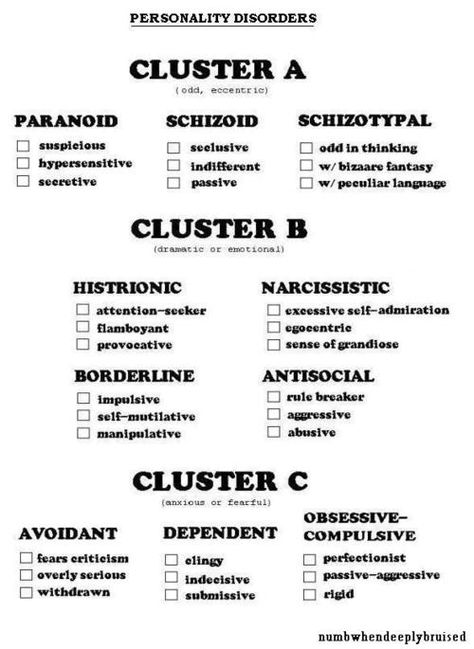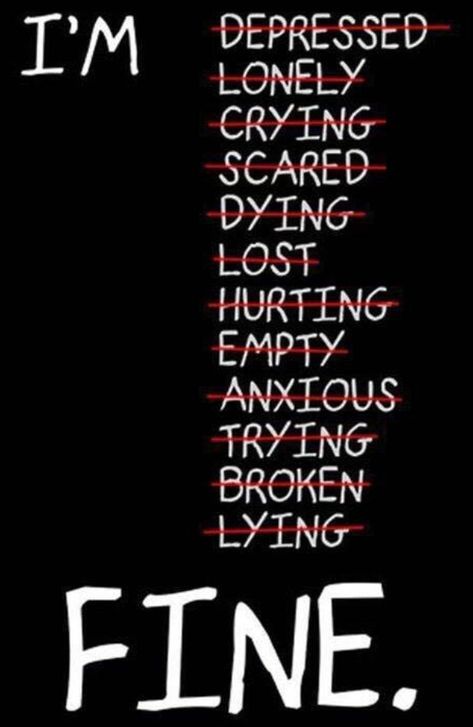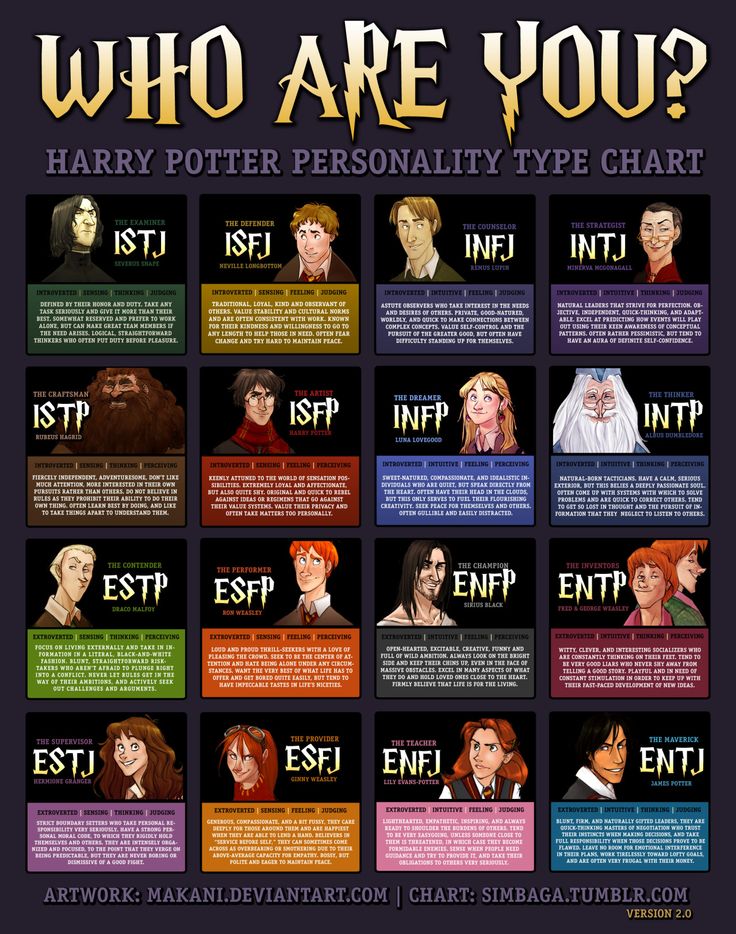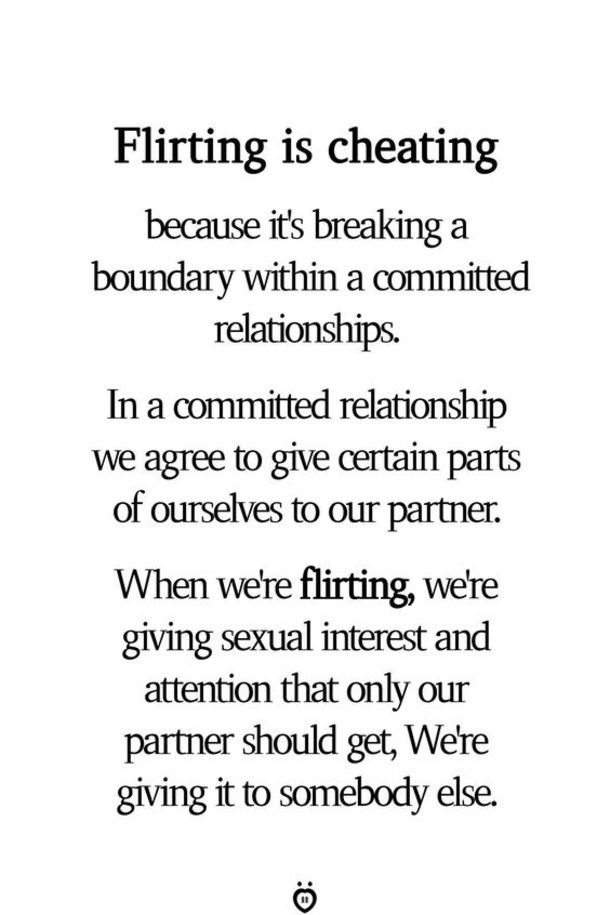How to make alot of friends
How To Have A Lot Of Friends And Create A Large Social Circle
- Chris MacLeod, MSW
This article is a bit more advanced than the more basic social skills advice this site usually covers. It's a collection of my observations on what people can do to make a lot of friends and build a large social circle for themselves. I'll start with some quick disclaimers then get into the actual suggestions.
- This article is about actions and strategies that are specifically focused on making a lot of friends, so it won't give vague, broad advice like "Be true to yourself" or "Be a good listener."
- The points below are about how to make a lot of friends, but not necessarily how to be a popular leader figure among them. Being seen as a charismatic leader type, whether to your whole campus, or among your six good buddies, is a different ball game from just knowing a lot of people. Someone can have a ton of social contacts, but be seen as just another regular person among them.
- The article's suggestions are about how to meet and make friends with a lot of people in general. I can't say if they'll all be from the same place. In other words, if you goal is to have everyone in your high school, or job, or college program, be friends with you, this article can't guarantee that. It's more about how to have a big social circle, but the members may be drawn from a mix of sources.
- If you've got logistical barriers in your life that get in the way of your making friends, you may not be able to fully use the tips below. For example, if you live in a really small town and don't have a car.
Having a ton of friends actually isn't the best fit for many people
I think for a lot of people the idea of having a ton of friends is better on paper than in reality. Someone may be a bit insecure and think if they can form a big social circle and be connected to everyone it will make them more worthy somehow. It's really only a particular personality type where having a million friends is a good fit for them.
Your average person is content to have a handful of good buddies, maybe one to three really close friends, and some acquaintances they hang out with now and then at bigger get togethers. It's also not rare at all for some people to like to spend a lot of time alone, and only have a couple of high-quality friends they see every so often. This is all totally normal and acceptable. More isn't automatically better. Some of the most likable people don't have, or want, any more friends than the next person.
I don't want to overstate my case and make it seem like having a ton of friends is completely empty and shallow and unfulfilling. It can be awesome to have a ton going on in your social life. However, knowing a lot of people has some drawbacks as well:
- It can take up a lot of your time to keep up with your many friends and meet their demands for your company. If you're the kind of person who likes to take a lot of time for themselves, that conflicts with constantly getting invitations to catch up or attend one get together or another.
 When you know a lot of people you'll also get tons of texts and social media messages throughout the day.
When you know a lot of people you'll also get tons of texts and social media messages throughout the day. - It takes a fair amount of time and effort to just meet a lot of people, or to constantly be organizing ways you can all hang out. If you're not that socially inclined, it can feel like a lot of work.
- If you know a lot of people, it's impossible that they're all going to be really close relationships. Friendly acquaintances you can do fun things with aren't automatically bad, but some of us get a lot less out of those types of connections than others.
- I'd say on average, if you have a ton of friends, you're going to be spending relatively more time doing activities that involve big groups. It's just one of the main ways you can keep up with a bunch of people at once. If you're not into bigger crowds, or the emphasis on partying that's often part of the package, having a huge social circle may not be for you. I also find when you see a lot of people at once it's impossible to have a lot of quality contact with each person.
/i.s3.glbimg.com/v1/AUTH_59edd422c0c84a879bd37670ae4f538a/internal_photos/bs/2019/7/P/iMOfuoQn2BPLTNqrDCRw/friendss.jpg) You just don't have enough time, and have to either chat to a bunch of people quickly, or pick a few to talk to in depth and neglect the others.
You just don't have enough time, and have to either chat to a bunch of people quickly, or pick a few to talk to in depth and neglect the others.
I've noticed that if someone is the type that doesn't need a lot of friends, but they learn and apply the skills to make a bigger social circle anyway, then over time they'll revert back to their ideal number. They'll start hanging out a lot with the handful of new friends they really get along with, and won't really keep up with their other contacts and acquaintances.
Okay, now that I've spent all that time trying to steer you away from just wanting to make a lot of friends for its own sake, here are my actual suggestions:
Have half-decent social skills and a pretty good idea of how to make friends already
You don't need to be the smoothest person who ever walked to the earth to have a lot of friends. In some ways the biggest influence on your number of friends will be how much effort you put into finding and making them.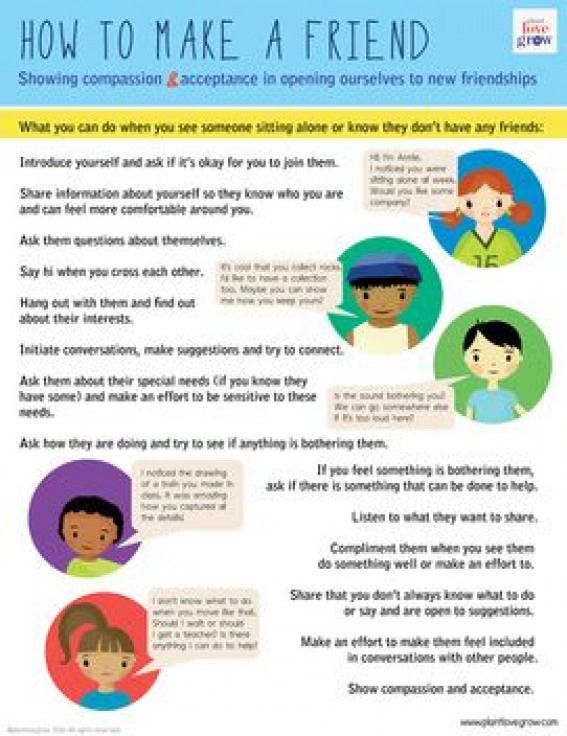 Still, your people skills should be in fairly good shape. In particular you should have a good grasp of the basics of how to make friends and how to organize plans. Knowing how to make a lot of friends is a step up from those more fundamental skills. Obviously, if you're really shy and inhibited, or you have some bad social habits that put people off you, you'll have to have made some improvements in those areas. You have to be somewhat confident as well, and at least not reek of desperation.
Still, your people skills should be in fairly good shape. In particular you should have a good grasp of the basics of how to make friends and how to organize plans. Knowing how to make a lot of friends is a step up from those more fundamental skills. Obviously, if you're really shy and inhibited, or you have some bad social habits that put people off you, you'll have to have made some improvements in those areas. You have to be somewhat confident as well, and at least not reek of desperation.
You've got to be fairly friendly and outgoing
When it comes to being more friendly and social, part of that involves specific behaviors like starting conversations or helping people feel included, but it's also about having a disposition that leans in that direction. To some degree you need to be the kind of person who genuinely enjoys spending time with others. If you find yourself somewhere where you don't know many people, you've got to be comfortable trying to get to know them. Again, you don't need to be the most cheery, outgoing person who's ever lived, but at the same time you can't keep to yourself too much or be super choosy about who you want to associate with either.
Again, you don't need to be the most cheery, outgoing person who's ever lived, but at the same time you can't keep to yourself too much or be super choosy about who you want to associate with either.
This is one more reason why having a ton of friends isn't for everyone. Another thing is that you actually have to like all the people you're making friends with. This isn't really a process you can do soullessly and mechanically, because you think collecting a bunch of friends will give you some payoff. You can maybe accumulate a bunch of people's contact information that way, but most of the relationships won't go much beyond that.
Article continues below...
Be involved in multiple activities where you can meet a lot of people
To make a ton of friends you need to meet a lot of people. Mind blowing, I know. In my experience, the people with a lot of friends are involved in all kinds of things which require spending time with a large group. They'll get to know many of the people they meet at each place, and pick up a bunch of new friends. Over time it really adds up, especially since once they've gotten to know someone from, say, the camp they worked at one summer, they can then also potentially meet all of that friend's friends. More sociable people naturally gravitate to doing this kind of stuff:
They'll get to know many of the people they meet at each place, and pick up a bunch of new friends. Over time it really adds up, especially since once they've gotten to know someone from, say, the camp they worked at one summer, they can then also potentially meet all of that friend's friends. More sociable people naturally gravitate to doing this kind of stuff:
- They'll join a bunch of clubs or committees at school.
- They'll sign up for multiple sports teams.
- They'll have a job or two where there are lots of co-workers around their age, and they can also meet members of the public (e.g., bartending).
- They tend to take one-off summer jobs where they can also meet a bunch of new people (e.g., tree planting).
- They'll get involved with local theater groups, dance companies, or things like that.
- They'll volunteer at various organizations, including short-term stints like helping out a yearly music festival.
- They'll start their own social or hobby groups, on sites like Meetup.
 com or in real life.
com or in real life. - They'll go traveling and pick up some new friends in each spot they visit. Sure, they'll more be people they keep in touch with online and maybe only visit every so often, but they're still friends.
People who have a variety of interests also have an advantage here, because the groups of potential friends they can access are less likely to overlap with each other.
Get really plugged into your niche and take on a central role within it
You can make a good number of friends even if you're part of a niche that doesn't have a lot of mass appeal. What you need to do is find a way to take on a more central role within it. Doing things this means you'll be put into contact with most of the people in the area who are also in your subculture. For example, if you're really into tactical board games, don't be a Regular Joe who occasionally plays with the couple of friends. Instead you could organize a weekly gaming night at your local hobby store. You could start a local online group, so the gaming enthusiasts in your city could all find each other. If a convention comes to town, you could volunteer to run a tournament for your favorite game.
You could start a local online group, so the gaming enthusiasts in your city could all find each other. If a convention comes to town, you could volunteer to run a tournament for your favorite game.
Organize and attend lots of bigger get togethers
When you see people in smaller groups you're mainly hanging out with friends you already know. The bigger parties and gatherings are where you can meet many new people. If you help throw a lot of bigger events yourself it can become a reliable way to meet new friends. For example, if you and two roommates share a house, you could make it the place where everyone comes over to hang out.
Get to know other people who have a lot of friends
There's no way to guarantee any particular well-connected person will want to be buddies with you, but if you can get to know at least some people like that it can give you access to a lot more potential contacts. If they get involved in a bigger get together, they'll bring many of their friends as well.
If you can, have things about you that draw people to you
Some individuals with a lot of friends are in that position because many people want to get to know them.
- They could just be really charming and likable.
- They could hold some kind of important, high-status position.
- They could have skills or accomplishments that make people look up to them (e.g., talented local musician, the stereotypical captain of the football team).
- They may be much better looking than average.
- They may have access to things other people want (e.g., career opportunities, desirable contacts, a cottage, a car in high school, the ability to get into exclusive places, the ability to teach important skills, etc.)
If you have something like that going for you, the upside is you have to do a lot less work to meet people and start friendships with them. The downside, as some of the points above got at, is that sometimes people will want to hang out with you for the wrong reasons. They may want to bask in your reflected glory, or take advantage of the status knowing you gives them. They may want access to the things you have. If you're good looking they may simply want to hook up with you or your friends. Faced with this, a lot of advantaged people will get more particular about who they hang out with, or will be drawn to associate with friends who are on a more equal footing to them, or who obviously don't care about the rewards they have to offer.
They may want to bask in your reflected glory, or take advantage of the status knowing you gives them. They may want access to the things you have. If you're good looking they may simply want to hook up with you or your friends. Faced with this, a lot of advantaged people will get more particular about who they hang out with, or will be drawn to associate with friends who are on a more equal footing to them, or who obviously don't care about the rewards they have to offer.
Stay in the same area for quite a while
When you move somewhere new you have to start your social circle from scratch. I know several people with a lot of friends who have lived in the same decently sized city for most of their lives. They still hang out with a lot of their friends from high school, and new relationships have kept piling up on top of that base. Of course, sticking to one city isn't for everyone. When someone hasn't moved their social circle can also accumulate a fair number of dead weight "legacy friends", who they can feel obligated to keep in contact with even though they've grown part.
How to Make New Friends
Written by Kara Mayer Robinson
Good friends are good for you.
“Good friends bring so many colors of happiness in your life by relieving stress, giving comfort, and removing loneliness,” says Amber O’Brien, PsyD, a psychologist with the Mango Clinic in Miami.
Healthy friendships are also linked to better cardiovascular health, lower blood pressure, less depression, and a longer life. So it never hurts to try to make new friends.
Where to Make New Friends
Mahesh Grossman, a 62-year-old hypnotherapist and owner of Berkeley Hypnosis in Berkeley, CA, has made many friends over the years by joining peer-led meditation groups, 12-step groups, and church groups.
“Everyone goes out to dinner after the meeting. I get to know them a little bit at the restaurant. Then I make an effort to grab a one-to-one meal with several members within the first few months,” Grossman says. “This eventually leads to friendship with some of those people and more comfort with the group as a whole. ”
”
You might find new friends when you:
Join a group or club. Find a local group where people with interests like yours meet regularly. Try a book club, religious group, parent meetup, music group, or biking group. “The key is to fish in the right pond,” Grossman says.
Take a class. Sign up for a class at your local college, senior center, or gym. Learn Italian, dancing, or a new card game. When the topic interests you, you’re likely to find people who share your passion.
Look locally. You may be surprised by how many events are happening right in your community. Look in your local newspaper or community bulletin boards. Go online for neighborhood listings. Search the name of your city plus the words “social network” or “meetups.”
Volunteer. People who work together often form strong connections. Meet people by volunteering with a community center, charitable group, hospital, museum, or place of worship.
Join a social circle. One of the easiest ways to meet people is to surround yourself with people who have large friend groups of their own, O’Brien says. “You may already have people in your life who have a lot of friends,” she says. Join them when they invite you out. Ask for introductions. Take the first step and start a conversation with someone new.
Making Friends Online
It may seem easier to make friends online because you can find people around the world who have similar interests. If you’re an introvert, online friendships may feel more comfortable.
But if you live in different areas, you can’t easily meet up or hang out in person. And online friendships may become unbalanced, where one person has a stronger emotional attachment than the other.
“Making new friends online is cool and fascinating, but it can get challenging,” O’Brien says. Try to set healthy boundaries to avoid problems.
How to Start a Friendship
Friendships take time, but you can take steps to spark a relationship and nurture a connection.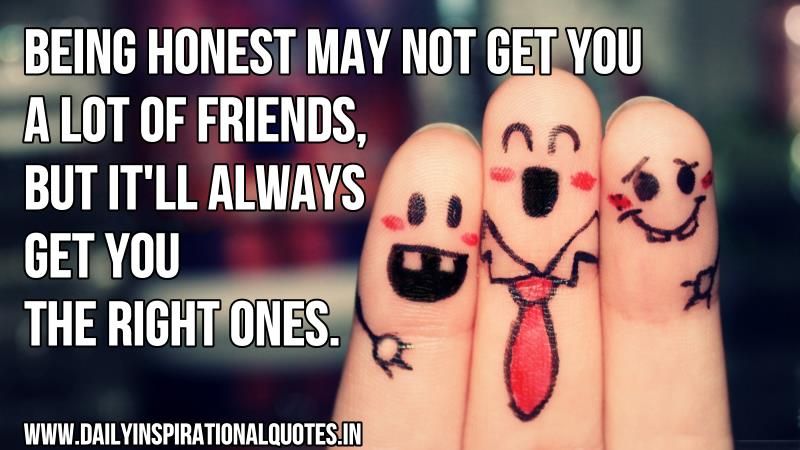
Say yes. When you’re invited to a gathering or event, accept the invitation. Return the favor by inviting them somewhere. Extend your own invitations and ask a friend or acquaintance to get coffee or lunch.
Take the initiative. “You don’t need to wait for anyone to reach out to you and take the first step. Instead, become the kind initiator, even if you’re an introvert,” O’Brien says.
Start the conversation. When you’re with someone you’d like to know better, start a conversation. “Share something about yourself,” O’Brien says. “Likewise, let them share about themselves.”
Show interest. Even if you’re just meeting someone, you can make them feel comfortable by asking the right questions and being a good listener. Ask open-ended questions. Encourage them to open up by saying things like, “Tell me more.”
Smile. Make eye contact and smile. “Smiling while keeping good eye contact will create a positive effect on the other person,” O’Brien says.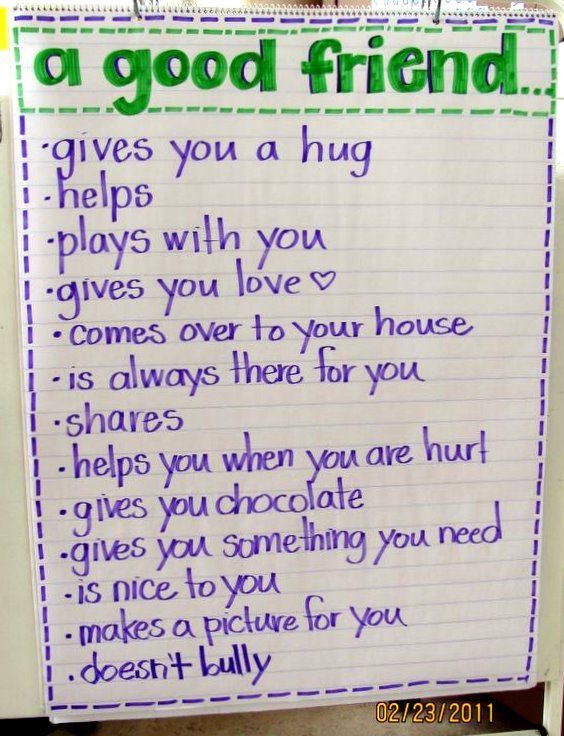 They’ll feel more comfortable and interested in the conversation.
They’ll feel more comfortable and interested in the conversation.
Share. As you get to know each other, try sharing small but more personal things about yourself. “If you’re open with them, it gives them permission to be open with you,” Grossman says. But don’t go overboard. Take it one step at a time.
Do a small favor. Small acts of kindness often lead to intimacy and connection. It doesn’t have to be big or obvious; just a little gesture creates a feeling of good vibes.
Keep it going. When you meet someone, exchange numbers. Call or message them later. Ask if they’d like to get together again. “Staying in touch is crucial,” O’Brien says.
What Not to Do
Avoid these common missteps:
Don’t change who you are. Don’t act different just to fit in. “Always be yourself, genuine, and honest,” O’Brien says.
Don’t brag. Boasting gives people a negative impression and may be a turnoff.
Don’t be too aggressive. Coming on too strong may turn people away. Ease in with friendly conversations before you suggest meeting up for coffee or a run.
Don’t expect results right away. “It takes time to establish a strong bond between two people,” O’Brien says. “Do your best, but keep your expectations low.” Research suggests that it may take 10 to 15 conversations before you feel like friends.
How to Know When You’re Friends
Signs of a new friendship include:
- The other person starts taking the initiative and calls or messages you.
- You feel comfortable and natural with them.
- You’re not hesitant to share or do something in front of them.
- You respond to them with empathy, and they do the same with you.
“First, there’s the becoming stage, where they do something to show they value your connection. They begin to text you or invite you to something,” Grossman says. Eventually, you become hangout buddies.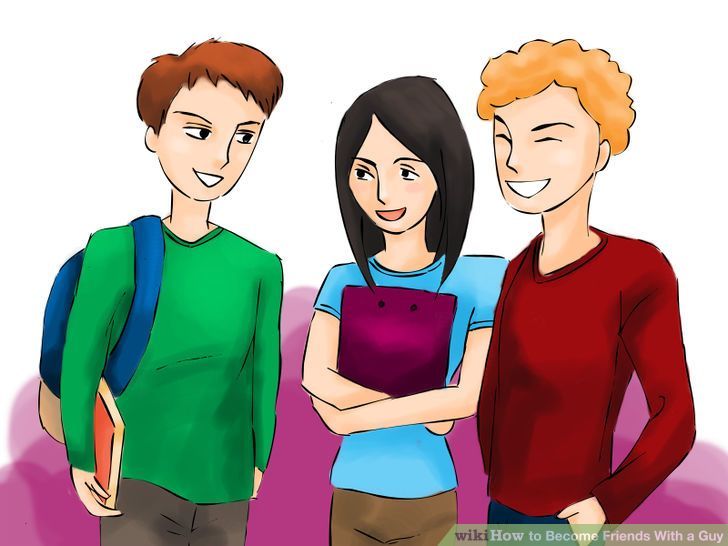 And then, over time, you’re in regular contact and feel like true friends.
And then, over time, you’re in regular contact and feel like true friends.
3 ways to make more friends
October 12, 2018Relationships
Take a step towards a stranger or renew old connections so as not to suffer from loneliness.
Share
0According to the sociologists Freeman and Thompson, published in 1989, the number of human social connections on average ranges from 250 to 5,500 contacts. The researchers also looked at friendships. They took the number of New Year's cards that an average person sends as the equivalent of intimacy. As a result, the average number of friends was 121.
But no matter how extensive your connections are, there are usually quite a few close people. According to 2008 data, the average American only trusts 10 to 20 people. And this number is gradually decreasing. For example, between 1985 and 2004, the number of soul mates decreased on average among those surveyed. Instead of three, there are only two left.
And this is not just a sad fact. Increased isolation leads to serious consequences. It has been proven that people with stronger social ties live longer. But don't be discouraged if you don't have enough communication in your life right now. The researchers have something to advise.
Don't neglect distant acquaintances
Even hanging out with people with whom you don't have strong social ties has a significant impact on emotional well-being. Perhaps you just need time to build a strong friendship with them.
According to a recent study, it takes 50 hours of communication to go from a simple acquaintance to a friendship. And 40 more hours to become real friends. In general, 200 hours to get close.
Restore old connections
Think of people you used to have trusting relationships with. It will be easier to get in touch with them. And the fact that you haven't seen each other for some time will give new food for conversation.
Take a chance and share something with someone you don't know well.
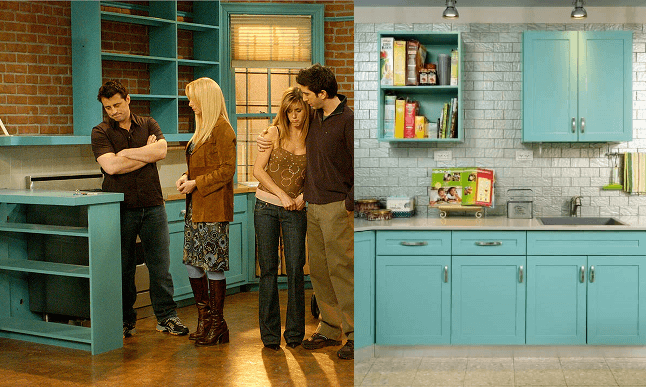
Try to open up to people you don't know well. By telling something personal, we endear ourselves to others. In addition, we tend to have more sympathy for those who have already been let into the soul.
Everyone needs fellowship and intimacy. It is quite possible that acquaintances will gladly meet you halfway. So close this article and try to make friends with someone from your environment.
Read also 🧐
- How Friends Affect Our Efficiency
- 11 Signs It’s Time to End Friendships
- Why Extraordinary People Avoid Mediocre Friends
How to make and keep friends: personal experience and scientific approach
September 6, 2021Relationships
Journalist Emma Beddington told how she made new acquaintances after moving to another city, relying on the advice of scientists.
Share
0Emma Beddington
Journalist, author.
You can listen to this article. If it's more convenient for you, turn on the podcast.
If it's more convenient for you, turn on the podcast.
My story
I don't want to admit it, but I don't know how to make friends at all. At 43, I have very few friends. Indeed, there is a better one. We met online - that's how almost all of my last friendships were born and maintained. I could put it down to circumstance, but I'm afraid that's just fine with me. This way I can disappear into uncomfortable situations, pull away when I get irritated, support the person without having to push myself too hard.
In addition, I have another friend from my school days and one from my old job, whom I last saw in 2009year. I have no university friends left, and for that I am especially ashamed. I was unhappy during my school years, but I met wonderful people who looked after me when I was at my worst and endured my selfish bouts of despair. After graduating from university, I was so glad that everything was over and I wanted to start a new life so much that I did not try to save friendship. Now I am terribly ashamed of my carelessness and ingratitude.
Now I am terribly ashamed of my carelessness and ingratitude.
This has happened over the last 20 years. I don't do it consciously. I seem to feel the need to shed old skin in every place I leave. This extends to the people who tie me to this place. According to clinical psychologist Sally Austen, there is a certain logic to this behavior.
Old friends connect us not only with happy memories, but also with bad ones. When there's a chance that old friends will get in the way of a clean slate, it seems safer not to stay in a relationship.
Sally Austen
psychologist
If only I had the talent to make new acquaintances. This is a difficult undertaking, even for those who find communication easier than me. According to recent data, it takes about 50 hours of communication to go from the first meeting to friendship. And for close friendship 200 hours. If one meeting lasts an average of two hours, it will take 25 meetings to become buddies. And a lot more if you usually prefer to just have a quick coffee with someone. It seems impossible for an adult with a family and a job to find time for friendship.
It seems impossible for an adult with a family and a job to find time for friendship.
But it has to be done. The scientific evidence on the dangers of social isolation and the benefits of communication is very convincing. Loneliness increases the risk of high blood pressure and heart disease, increases the likelihood of death by 26%. It is not yet clear why exactly it is so harmful. But it seems that those who feel lonely, immunological reactions change.
Friendship, on the contrary, is useful from a chemical point of view. Friendly touch triggers the release of oxytocin, and communication releases endorphins. When we are with a friend, we release less cortisol in stressful situations. We can endure discomfort after communication longer. Since science explained why I need friends, I decided to rely on it in my search for them.
Tips for those who want to make friends
Reconnect with old acquaintances
Reconnecting with old friends has concrete benefits, according to researchers.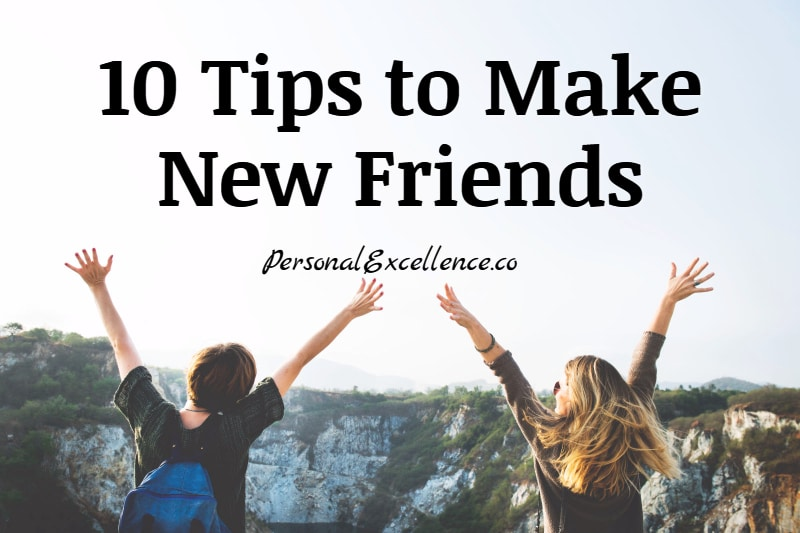 In the dry language of scientists, this is “quite effective,” that is, faster and easier compared to finding new ones.
In the dry language of scientists, this is “quite effective,” that is, faster and easier compared to finding new ones.
Since I returned to my hometown, I decided to start with this most obvious way. I scoured Facebook* for people I knew, and, burning with shame, I wrote if someone from the locals would like to meet. This brought me several invitations for a cup of coffee. I was also introduced to friends of friends, so it was worth it.
Spend more time among people
Sociologists have proven that the more often we see someone, the more pleasant they seem to us. Even if it's not a person, but a huge garbage bag. In 1968, scientists conducted this experiment: a class of students was joined by someone completely wrapped in a black bag. Over the course of two months, the attitude of students towards him gradually changed: from hostility to curiosity and friendly disposition.
I have taken this into account and regularly go to the co-working space, where I have already made one promising acquaintance. Her name is Poppy, she has amazing eyebrows, and she loves to be scratched on the head. Yes, Poppy is a miniature schnauzer, but I hope that in time I will find friends among people. I'm in the same category as a trash bag in terms of attractiveness, so I'll stick with that plan.
Her name is Poppy, she has amazing eyebrows, and she loves to be scratched on the head. Yes, Poppy is a miniature schnauzer, but I hope that in time I will find friends among people. I'm in the same category as a trash bag in terms of attractiveness, so I'll stick with that plan.
Seek like-minded people
This classic advice is based on scientific evidence. Friends usually have similar preferences, personality traits, and even a similar nervous response to videos.
Armed with this knowledge, I went to Meetup in search of like-minded people who share my passion for watching owls through webcams and TV presenter Philip Mold. There were none, so I signed up for a meeting where I could speak French.
The very absurdity of the situation, when a group of Englishmen stammeringly speaks in another language, helped to break the ice. And soon I am loudly indignant in French at slow tourists. I enjoyed chatting with a woman named Kathleen about the ubiquitous seagulls and even discovered that I have a mutual friend with one person (Poppy the Schnauzer). And I really looked forward to a new meeting, joyfully saying at the end: "Until next time!"
And I really looked forward to a new meeting, joyfully saying at the end: "Until next time!"
Keep in touch
What moved me the most was the study that friendships last long when both parties make contact. This is exactly what I have not been able to do in the past.
Of course, I need to communicate with people other than my relatives, and I will try to make new friends. But honestly, I don't think I deserve them until I learn how to keep in touch with the old ones. I asked psychologist Sally Austen how not to repeat my mistakes.
People make mistakes, and when two people try to build relationships, there are even more mistakes. You need to try, be persistent and courageous, do not miss the opportunities that are presented and create them yourself.
Sally Austen
psychologist
Yes, friendship takes a lot of time, effort and kindness. But the few people that I have are not only good for my health, but also for my soul. An hour spent with a friend is like pure oxygen.





